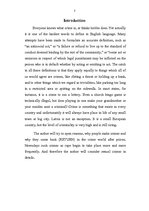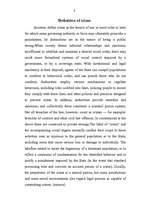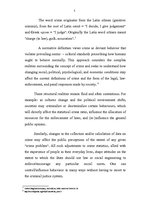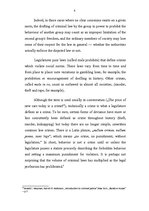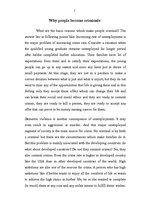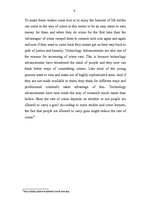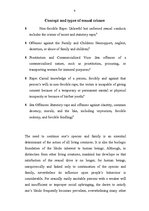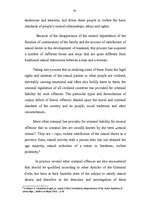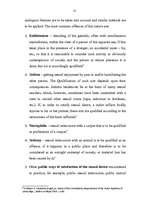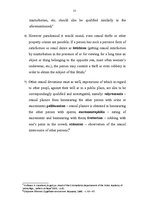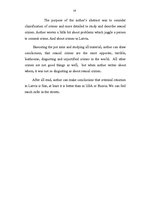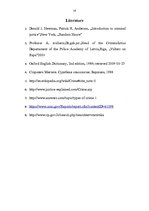-
Sexual Crimes
| Nr. | Название главы | Стр. |
| 1) | Introduction | 3 |
| 2) | Definicion of crime | 4 |
| 3) | Why people become criminal | 7 |
| 4) | Concept and types of sexual crimes | 9 |
| 5) | Tips on How to Avoid Becoming a Crime Victim | 13 |
| 6) | Complection | 14 |
| 7) | Keywords | 15 |
| 8) | Literature | 16 |
| 9) | Appendixex | 17 |
Everyone knows what crime is, or thinks he/she does. Yet actually it is one of the hardest words to define in English language. Many attempts have been made to formulate an accurate definition, such as “an antisocial act,” or “a failure or refusal to live up to the standard of conduct deemed binding by the rest of the community,” or “some act or omission in respect of which legal punishment may be inflicted on the person who is in default whether by acting or omitting to act. The catch in all these definitions is that they apply equally to things which all of us would agree are crimes, like slitting a throat or holding up a bank, and to other things which we regard as trivialities, like parking too long in a restricted area or spitting on the sidewalk. In most states, for instance, it is a crime to run a lottery. Even a church bingo game is technically illegal, but does playing in one make your grandmother or your maiden aunt a criminal? Crime is something that exists in every country and unfortunately it will always have place in life of any small town or big city. Latvia is not an exception. It is a small European country, but the level of criminality is very high and is still rising.
The author will try to open reasons, why people make crimes and why they came back (RETURN) in the crime world after prison. Nowadays such crimes as rape begin to take place more and more frequently. And therefore the author will consider sexual crimes in details. …
Societies define crime as the breach of one or more rules or laws for which some governing authority or force may ultimately prescribe a punishment. Its distinctions are in the nature of being a public wrong.When society deems informal relationships and sanctions, insufficient to establish and maintain a desired social order, there may result more formalized systems of social control imposed by a government, or by a sovereign state. With institutional and legal machinery at their disposal, agents of the State can compel populations to conform to behavioral codes, and can punish those who do not conform. Authorities employ various mechanisms to regulate behaviour, including rules codified into laws, policing people to ensure they comply with those laws, and other policies and practices designed to prevent crime.


